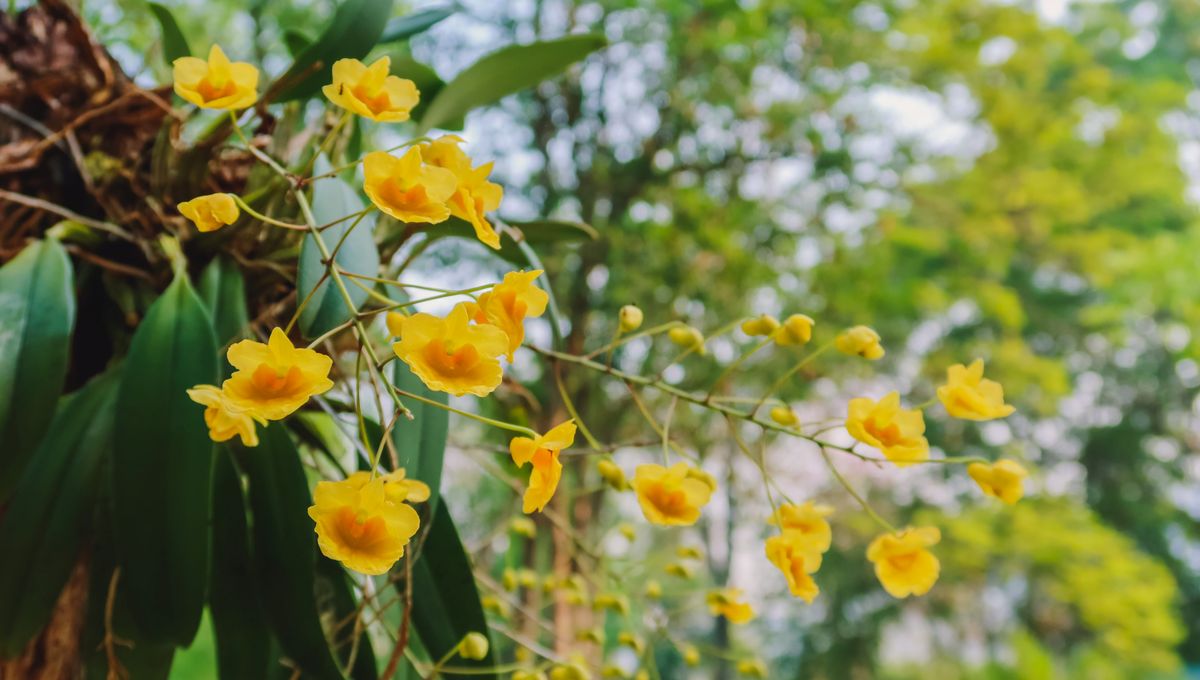
A gorgeously garish species of orchid, known to the Indigenous Tsou people as the “God Flower”, is rapidly disappearing from the mountainous wildlands of Taiwan. Just like the plight of countless other flowering plants around the world, some suspect that climate change is the prime suspect.
Also known as the Dendrobium orchid or golden grass orchid, the plant boasts a bright yellow flower with a rich orange-fringed center. It was once found in abundance across Taiwan, but the Tsou are now being forced to trek further and further into the mountainous forests of Alishan Township to find the flower, the BBC reports.
The flower plays a significant role in the culture and spiritual beliefs of the Tsou, making its apparent demise all the more poignant.
“My tribe has to have the God Flower for our ceremonies. Otherwise, God won’t be able to find us,” tribal elder Gao Desheng told the BBC.
The orchid is also closely associated with the Tsou’s war god. An Xiao-Ming, another Tsou person, explained: “It is said that the God Flower surrounds the habitat of this deity. These flowers are placed on the roofs of Kuba, signifying the presence of the divine.”
For the plant’s buds to successfully bloom in spring, temperatures in winter should ideally be below 12°C (54°F). As a result of climate change, temperatures in the region are rising above this seasonal threshold. The average November temperature in Alishan is currently around 12 to 14°C (54 to 57°F) and that’s expected to rise to 14 to 16°C (57 to 61°F) by 2050 if current trends continue.
This important plant isn’t the only flower set to suffer as the climate crisis continues. Rising temperatures are set to alter the world’s flowering plants in a myriad of ways.
Many flowers are now blooming earlier than before due to rising temperatures. Among plants in the UK, the average first flowering date is a full month earlier than in the past. Over in Japan in 2021, climate change was thought to be responsible for the earliest cherry blossom season in some 1,200 years.
Oddly, research has also indicated that flowers are changing their colors in response to climate change. Faced with rising temperatures and declining ozone over the past 75 years, flowers across the world are altering ultraviolet pigments in their petals.
As well as early blooms and changing colors, flowers are becoming more abundant in places where they were once scarce, such as the frigid coasts of Antarctica.
Overall, however, it’s looking like the planet of the future could be significantly less flowery than in previous centuries. Recent research has shown that climate change is likely to make life much harder for wildflowers. This could reduce the number of helpful pollinators like bees and, in turn, threaten food security.
Source Link: The "God Flower" Is Disappearing And Folks Are Blaming Climate Change